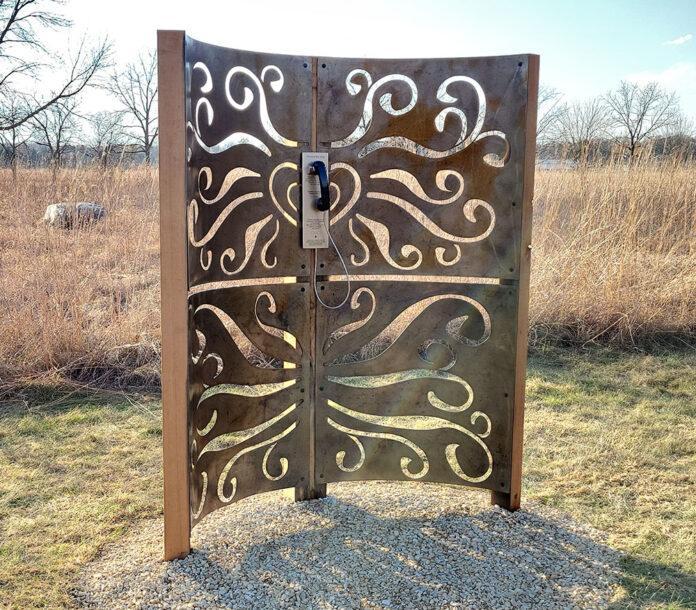
Itaru Sasaki, a garden designer in Japan, was grieving the loss of his cousin. He came up with the idea of a phone in an old-fashioned booth which he set up in his garden in 2010. He was able to feel connected to his cousin by “talking” to him on the phone. In an interview with Bloomberg, Sasaki said, “Because my thoughts couldn’t be relayed over a regular phone line, I wanted them to be carried on the wind.”
The story might have ended there if it was not for the 2011 Tohoku earthquake and tsunami which resulted in the deaths of over 15,000 people.
Sasaki opened the phone in his garden to the many others grieving the loss of loved ones. The phone has since received tens of thousands of visitors and been the inspiration for several books and movies. Additionally, many replicas have been installed around the world.
Plan Conceived
In 2019, Janet Prehn, a registered nurse and a death doula, learned about Sasaki and his wind phone. She knew she wanted to make one available to the people of the Saint Peter area. “I was so moved by the idea that I immediately envisioned one in the Arboretum at Gustavus.”
Prehn was involved with a group of hospice nurses, death doulas, and compassionate community members. The group’s emphasis is to offer mutual support, educate the community that death is a normal part of life, and offer assistance to the dying and their loved ones.
I was so moved by the idea that I immediately envisioned one in the Arboretum at Gustavus.Janet Prehn
Michelle Kaisersatt, an artist, and a member of Sacred Circle, as the group called itself, said, “I think one of the things that COVID did for us was to show how little support there is available for people who are going through grief. We have a funeral and a visitation, but we really don’t engage much after that to support the grieving process. We don’t have much else to offer somebody to embrace those emotions. It’s much like the commonality of a birth, but we don’t talk about the death part.”
Prehn brought her desire to install a wind phone locally to the group and it was received with enthusiasm.
Vision Received
The group tossed around a lot of ideas about what the phone would look like, where it should be located, and many other details but no consensus was reached. “We talked about a European phone booth and it’s kind of funny when we think about it now because the cost was prohibitive,” said Kaisersatt.
The best plan so far was to place the phone in a tiny booth like the free libraries positioned throughout the community. Then clarity arrived.
“In the middle of the night one night, there was this vision of what the Phone of the Wind could look like,” Kaisersatt recalled. “So, I sketched it out, and I brought it to our next meeting, and everyone was like, ‘Yes! Let’s do that’”
The vision for the phone was clear from that point on.
Goal Achieved
Kaisersatt reached out to an acquaintance, Julie Dempster, who had been involved in several other regional signage projects and who also worked regularly with CAD drawings for manufacturing projects. Dempster made an introduction to Robyn Block who was the apprentice of the late metal worker, Arnie Lillo.
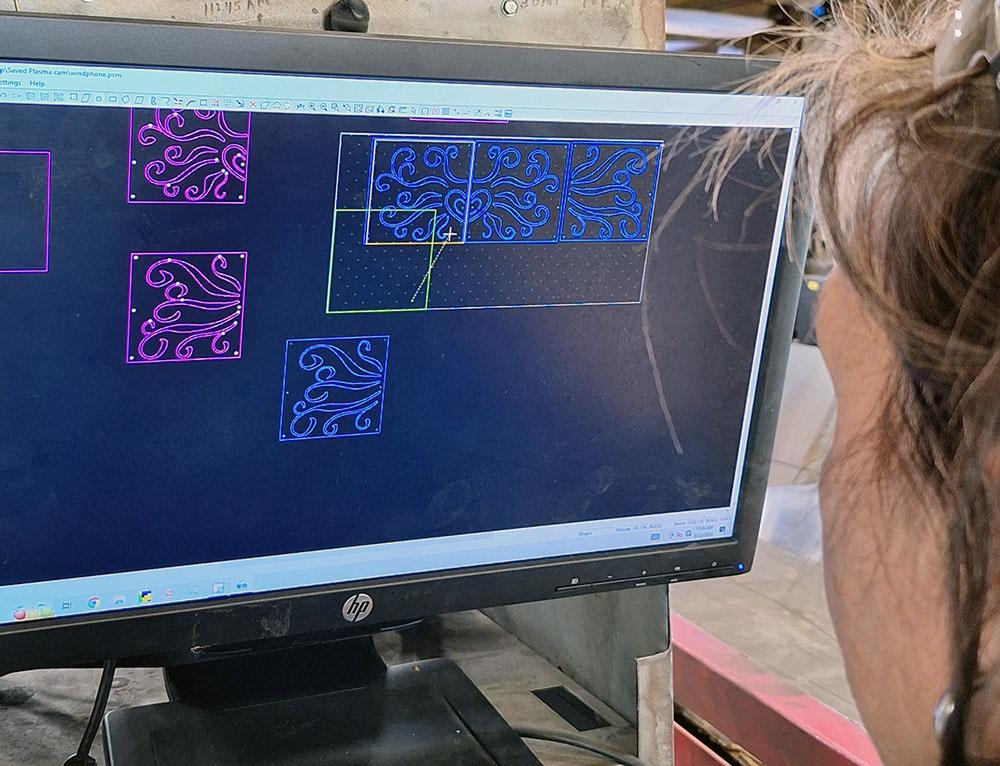
Block aided Kaisersatt through the fabrication process after Dempster translated the design to CAD. In early Autumn of this year, Block, her apprentice, Dayton Lawson, and Kaisersatt fabricated the steel pieces of the display that accompany the phone.
The group initially reached out to Scott Moeller, Arboretum Director & Naturalist at Gustavus Adolphus. Others at the college got involved including Steve Bennet, Gift Planner in Advancement as well as several members of the maintenance staff.
The phone is for the heart to communicate to another heart in a way that transcends all languageMichelle Kaisersatt
The phone itself is mounted on a metal sign. Wanting it to be as accessible as possible, the Sacred Circle spent a lot of time thinking about the languages that should be represented on the sign. In the end, they went in a different direction.
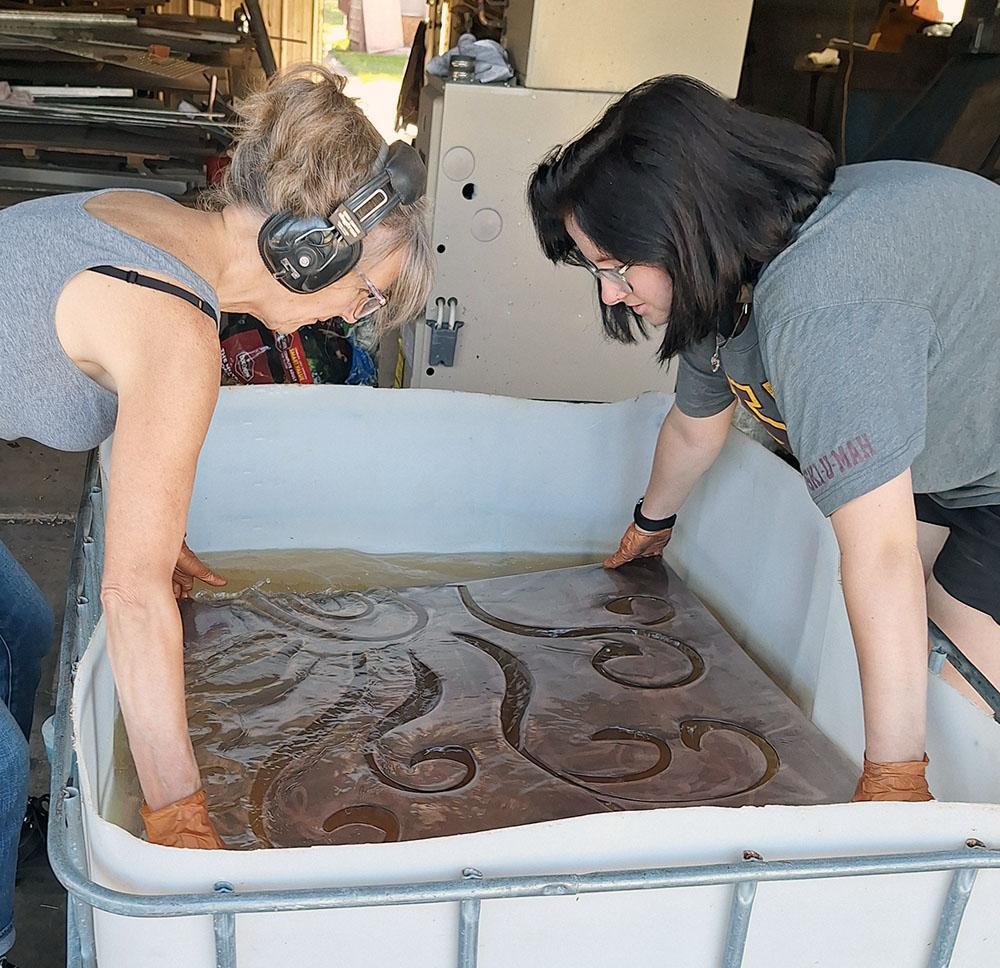
“We made it very simple. The phone is for the heart to communicate to another heart in a way that transcends all language,” Kaisersatt explained. Instead of words, the plaque communicates primarily with symbols along with a very simple written message.
Long-term care of the phone was a concern and the maintenance crew at Gustavus was instrumental in recommending materials that would require minimum upkeep. The wooden part of the installation was made of cedar, and the metal portions were acid etched. “There is nothing else that needs to be done with the steel. After acid etching, it will be maintenance free,” Kaisersatt said.
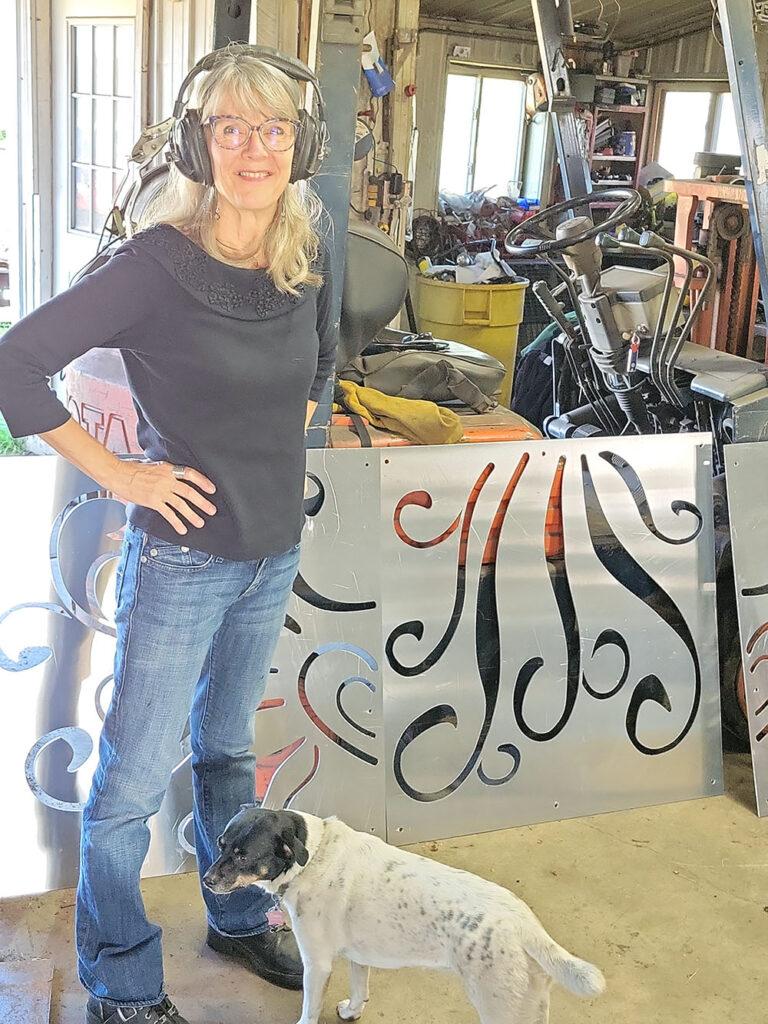
As with the rest of the process, finding the right location in the Arboretum took work and discussion. The chosen site sits near the edge of the formal gardens and the beginning of the prairie. Appropriately, it’s not far from the memorial for Jori Jones, a Gustavus hockey player killed in an automobile accident in 2023.
Arboretum Director, Scott Moeller, said, “Part of the reason for placing it where we placed it is because Jori Jones’ memorial bench, the wind phone, and the chapel spire are all on the same line.”
Dedication
The phone was installed in the Linnaeus Arboretum at Gustavus Adolphus College and a dedication ceremony was held on November 1st.
Prehn said, “I hope that it will provide a place for healing and peace for those who are going through grief and loss. There are a lot of stories about other wind phones, and they have been a real tool for healing.”
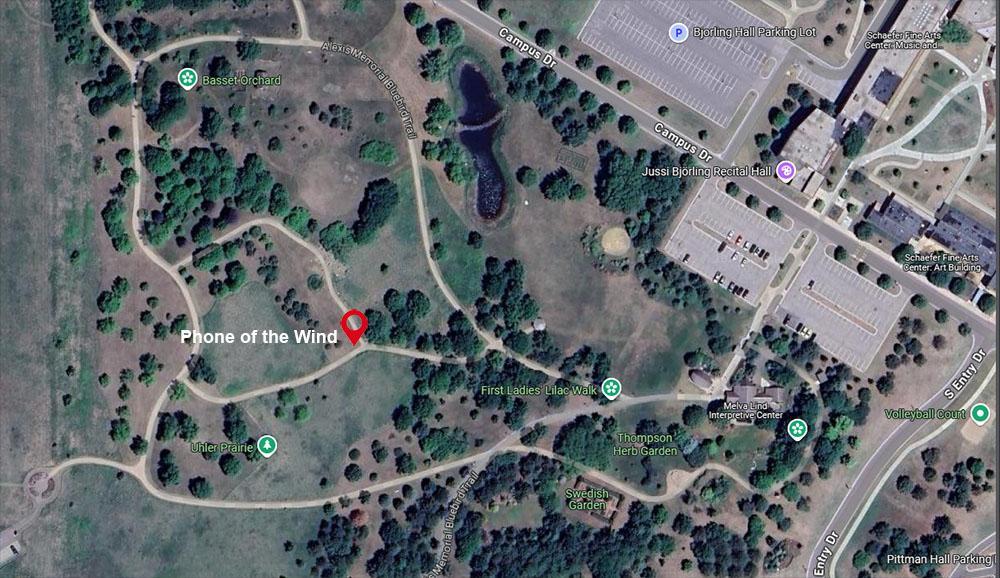
Kaisersatt added, “I’m hoping it crosses all generations, all races, all ethnicity…. I mean everybody, because everybody has experienced some type of loss.”
Prehn summarized the entire process, “It has been a very amazing and blessed journey.”
The public is encouraged to visit and use the phone at the Arboretum.



